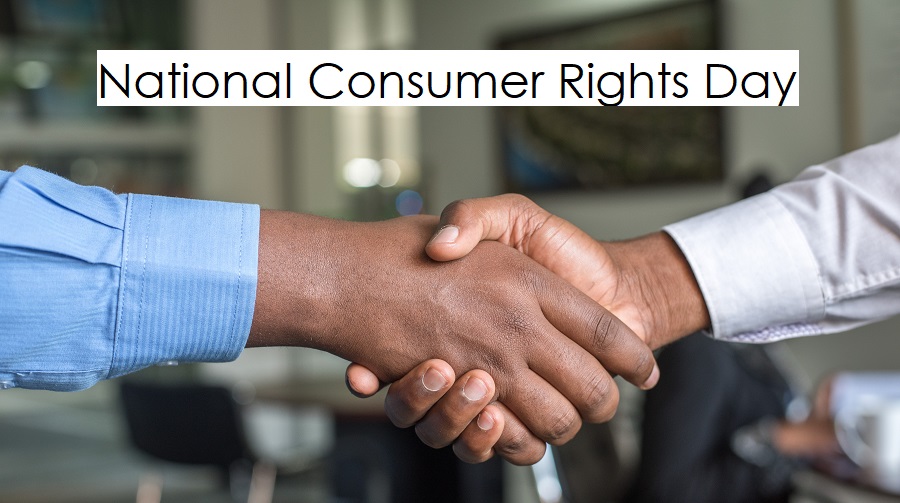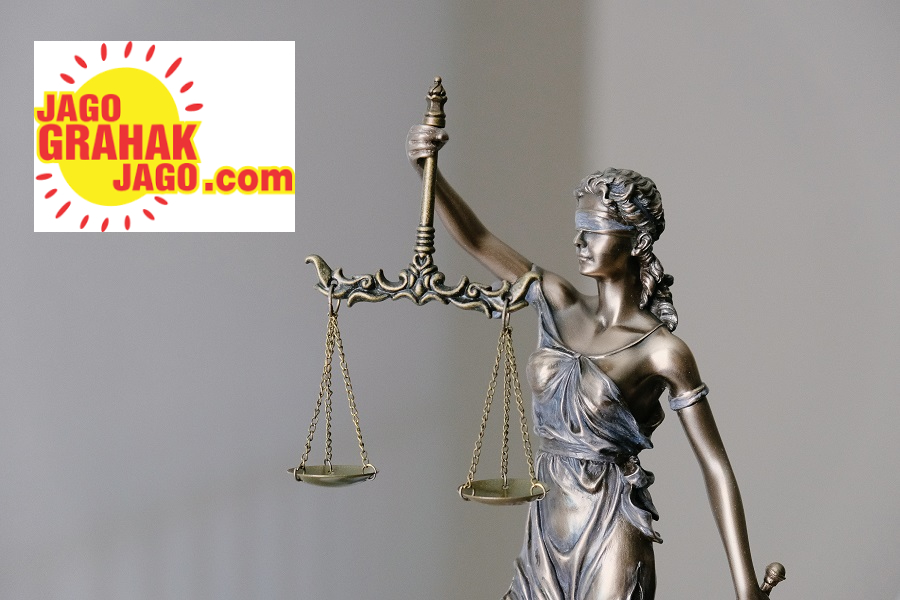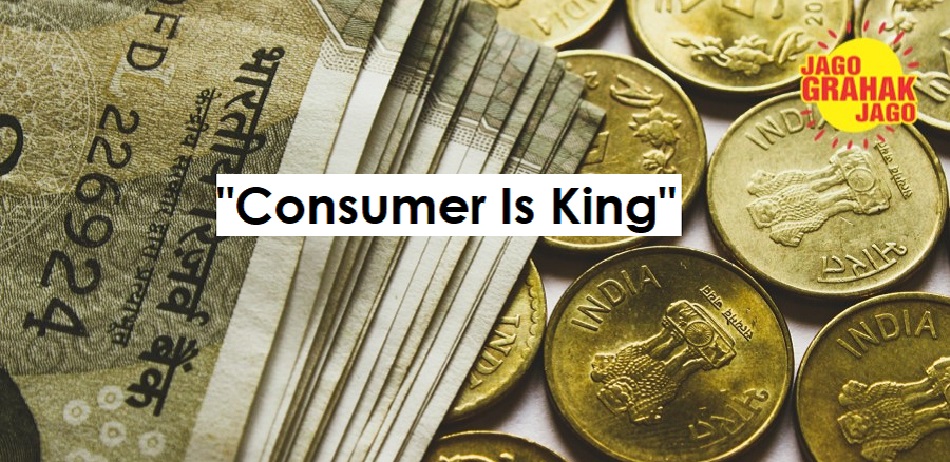In India, National Consumer Rights Day is observed on the 24th of December every year and the day is honored all across the world on 15th March. Its goal is to raise consumer knowledge about their rights. It’s vital to note that these rights should be known by both the buyer and the seller. This would ensure efficient trade and reduce instances of unfairness. Every human being born on this globe becomes a ‘consumer,’ who begins to consume things and services in some form or another, and so the ‘cost estimation’ and expectation of ‘value for money’ emerge!
What Is National Consumer Rights Day?
Every year on the 15th of March, National Consumer Rights Day is noticed. We frequently use the term “consumer,” but do we really understand “who a consumer is” and “what his or her roles and obligations are?” A customer is a person or entity of people who purchases or desires to buy items, products, or services for personal, domestic, or social reasons.
‘Jago Grahak Jago’ is a campaign that says ‘wake up consumer, be mindful.’ It is a consumer awareness initiative taken by the Department of Consumer Affairs with the goal of raising consumer awareness through advertisements, consumer education, and audio-visual promotions.
The government is committed to providing strong protection for consumers and protecting them from different forms of exploitation, such as low-quality goods, insufficient services, and unfair trading practices. For the goal of generating a profit, certain businesspeople may mislead customers with their sugar-coated phrases. Strict laws have been enacted to prevent such wrongdoings.
If a customer makes a claim against a product’s manufacturer or seller for receiving defective products, or if a manufacturing flaw is discovered in the product and it violates the warranty regulation, both the producer and the seller will be held responsible.
National Consumer Rights Day’s History
Former US President John F Kennedy was the driving force behind the creation of World Consumer Rights Day. On March 15, 1962, he issued a special statement to the US Congress in which he explicitly addressed the topic of consumer rights.
The consumer movement honored that occasion for the first time in 1983, and it is now observed every year to activate action on key consumer problems and activities. Maharashtra was the birthplace of India’s consumer movement, which began in 1966. Institutions for consumer welfare were developed in various states after the founding of the Grahak Panchayat in Pune in 1974, and the movement continued to flourish.
The Consumer Protection Bill was approved at the request of then-Prime Minister Rajiv Gandhi on December 9, 1986, and went into effect following the President’s signing. An adjustment to this statute was established last year, on July 20th, to empower and empower customers.
Theme For 2021
“Tackling Plastic Pollution” is the topic of this year’s national consumer rights day. The goal is to encourage environmentally friendly practices while still preserving the rights of customers and the ‘grahak’. The Consumer Rights Ministry has already launched a campaign called “Jago Grahak Jago.” The Consumer Affairs Ministry stated, “The campaign will increase awareness and educate consumers internationally to practice more sustainable practices.”
‘Consumers International’ gathered photographs from around the globe to demonstrate how the 7 ‘R’s of replace, rethink, refuse, reduce, reuse, recycle, and repair play an essential part in the global battle against plastic pollution. The National Consumer Rights Day is an annual occasion for the world consumer movement to come together in joy and unity. On World Consumer Rights Day, several nations host activities and conferences focused on human rights.
Basic Rights Of The customer
Under the Consumer Protection Act of 1986, customers are granted at least eight rights. This also contains six worldwide consumer rights enshrined in the United Nations Charter, which assure fair treatment of customers and the resolution of disputes in consumer tribunals for those who have been wronged. Learn more about it from here.
Right To Safety
The consumer right is defined as the “right to be protected from the marketing of goods and services that are dangerous to life and property,” according to the Consumer Protection Act of 1986. This right is stretched over the domain having a significant influence on the health of the consumers or their well-being, viz. Automobiles, Home, Household Appliances, Traveling, and so on. It is relevant to specialized fields such as healthcare, medicines, and food processing. The National Consumer Rights Day is a step to make people aware of their rights.
Right To Information
The Customer Protection Act of 1986 defines the right to information as “the right to be educated about the quality, volume, efficacy, purity, grade, and value of products or services, as the case may be, to safeguard the consumer against unfair commercial practices.”
Consumers in India rarely receive exact and full information to determine a product’s genuine value, safety, applicability, and dependability. Hidden prices, lack of appropriateness, quality issues, and safety dangers are usually discovered only after the product has been purchased.
On paper, the Indian government claims another right; this right should ideally ensure that all consumable items are labeled uniformly, including the pricing, amount, ingredients, and directions for safe use. The basic idea of National Consumer Rights Day is to make a common citizen of India aware of their power.
Right To Choose
The Consumer Protection Act of 1986 defines the Right to Choose as “the right to be guaranteed, whenever practicable, of having access to a choice of products and services at reasonable prices.” There is just one thing that is necessary to regulate the market space, and that is competitiveness. The existence of oligopolies, cartels, and monopolies has been shown to be detrimental to consumers.
Right To Be Heard
The right to be heard is defined under the Consumer Protection Act of 1986 as “the right to be heard and to be guaranteed that consumer concerns will be properly considered at suitable forums.” Through National Consumer Rights Day, a consumer is reminded about the support and power that he can receive against unfair traders.
This right empowers Indian consumers by allowing them to voice their complaints and concerns without fear of retaliation, and to raise their voices against products or corporations, ensuring that their problems are heard and addressed quickly. However, the Indian government has yet to establish even a single mechanism for hearing from customers or resolving their complaints.
Right to redressal
According to the Consumer Protection Act 1986, the right to seek redress against unfair commercial practices, restricted trade practices, or unethical exploitation of customers is referred to as the right to redress. The National Consumer Rights Day is an effort for safeguarding consumers.
In this aspect, the Indian government has been a little more successful. The Consumer Protection Act established consumer tribunals such as National Consumer Disputes Redressal Commissions, State Consumer Disputes Redressal Commissions, and District Consumer Disputes Redressal Forums at the district level. National Consumer Disputes Redressal Commissions.
Right To Consumer Education
The Consumer Protection Act of 1986 establishes the right of every Citizen of India to receive education on consumer protection issues as well as about his or her own rights. The right ensures that consumers in the nation have access to easily available informative programs and resources that will help them to make better purchase decisions. Thus National Consumer Rights Day is a significant event for all of us.
Importance Of National Consumer Rights Day
Individuals can use this day to emphasize the significance of the consumer movement and the need to increase consumer awareness of their rights and duties. A conscientious customer may help to significantly reduce the problem of substandard, faulty goods, deficient services, adulteration, unethical trade practices, and so on. The duty for promoting and protecting consumer rights lies with all of us, but especially with government authorities.
The government also introduced many plans to combat trade folly, market abuse, seller exploitation, and consumer injustices as part of the new protection system to defend consumers’ rights. By addressing product liability, the Act also provides legal protection to customers against unfair business practices and the selling of faulty items & services.
If a customer is defrauded, he or she can file a complaint with the District Consumer Commission or the State Consumer Commission in the area where the goods were purchased, or go to the seller’s registered office. The complainant must file the complaint electronically and pay the filing fee electronically.
Conclusion
In some way or another, we are all consumers. Protecting consumer rights has become increasingly vital in today’s world. As part of this project, the government has employed print, media commercials, audio campaigns, and video initiatives to raise public awareness through consumer knowledge and information. The National Consumer Rights Day is a step towards establishing fairness and equality for all.
In the sphere of consumer protection, the Consumer Protection Act of 1986 is known as the “Magna Karta” for preventing unfair trading practices. It has had a big influence on how firms handle customer complaints and has given customers more power. It has resulted in the construction of a vast network of consumer forums and appellate courts across India, ensuring quick and low-cost resolution of consumer issues.
Recognize that a consumer’s right to enjoy “Consumer Rights” is a basic human requirement as well as a sign of dignity. Be wary, sellers… Consumers want “exact quantity” and “genuine quality”; after all, “the consumer is king,” and “consumer rights” must live on!
Frequently Asked Questions
Also Read: Difference Between Eastern Ghats and Western Ghats





